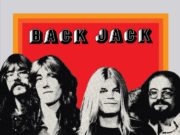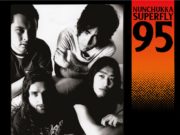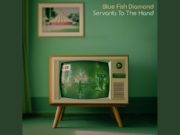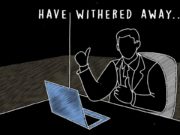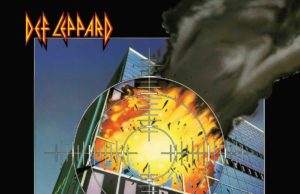 I had a hankering to listen to When We Meet Again by G. Love & Special Sauce the other day, to celebrate the record-breaking warm weather and the fact that I saw a robin. Spring is in the air, and not just the smell of soggy, thawed over-winter dog turds. G. Love puts it more poetically:
I had a hankering to listen to When We Meet Again by G. Love & Special Sauce the other day, to celebrate the record-breaking warm weather and the fact that I saw a robin. Spring is in the air, and not just the smell of soggy, thawed over-winter dog turds. G. Love puts it more poetically:
“Springtime is here, and the wind from the south
Blows strong and warm to clean out your house
The sun has arisen and the lies that were told are
Driven outside with the freezing cold.”
I spun this track and then decided to dive into the whole album — 1997’s Yeah, It’s That Easy. It’s probably been nearly a decade since I last heard it. Used to really love this album, perhaps not as much as his debut, but it’s a good’er nonetheless. One of the songs, Making Amends, used to be a sing-along-in-the-car favourite. I made sure to do that. One of the song’s hooks is the use of a repeated word: “Amends.” It doesn’t show in the lyrics how many times it gets repeated, you have to actually count them. The answer is 14:
“Don’t burn your candle from both ends
Now you gots to make amends
Amends
Amends
Amends
Amends
Amends
Amends
Amends
Amends
Amends
Amends
Amends
Amends
Amends.”
It’s a pretty effective type of alliteration — percussive rather than poetic. Like a vocal trap beat. A bit goofy, maybe. You wouldn’t want to do it too often. Maybe not even twice.
I went hunting to see how many more of these I could find in my own record collection. There’s a pretty famous one, of course: Ain’t No Sunshine by Bill Withers from 1971. There are two words which get repeated: “I know.” He does it 26 times.
“And I know, I know, I know, I know
I know, I know, I know, I know, I know
I know, I know, I know, I know, I know
I know, I know, I know, I know, I know
I know, I know, I know, I know, I know
I know, I know
Hey, I ought to leave young thing alone
But ain’t no sunshine when she’s gone.”
The story goes that Bill actually intended to write a third verse and only meant to use “I know” as a placeholder for proper lyrics. But, when it was strongly suggested that he leave them as is, he did. Another Withers hit also employs a ridiculous amount of repetition — Lovely Day from 1977. The chorus of the song has Withers saying the line, “And I know it’s gonna be / A lovely day.” Withers holds the note on the word day for 18 seconds, which is the longest of any Top 40 American hit. While he does this — six times — the background vocals repeat the song’s title 63 times.
Devo’s Brian Eno-produced debut album Q: Are We Not Men A: We Are Devo! is one of my favourites. The band released their cover of (I Can’t Get No) Satisfaction as a single. It’s vastly different to the original by The Rolling Stones. Musically, it’s not even the same song. In fact, the band initially set out to cover Paint It Black. But, the lyrics are what we’re discussing here. Devo get stuck on the word “baby” in the third verse:
“When I’m ridin’ ’round the world
And I’m doin’ this and I’m signin’ that
And I’m tryin’ to make some girl, who tells me
Baby baby baby baby baby baby baby baby baby baby baby baby baby baby baby baby baby baby baby baby baby baby baby baby baby baby baby baby baby baby baby baby baby baby
Better come back maybe next week
Can’t you see I’m on a losing streak?”
They repeat the word “baby” 34 times. Kind of makes songs like Wings’ Hi Hi Hi or Paul McCartney and Michael Jackson’s Say Say Say seem like a bit of a piss-poor effort.
This next one probably doesn’t count because it’s not sung repeatedly, but rather repeated on a tape echo. Even so, on the Pink Floyd track Dogs from 1977’s Animals, David Gilmour sings the cheerful line, “So have a good drown, as you go down, all alone. Dragged down by the stone.” The word “stone” is repeated with echo dozens of times and even comes back again later on the other side of the record in the track Sheep.
The Trashmen sing “a well a bird, bird, bird, the bird is the word” more than 20 times in their 1963 hit Surfin’ Bird. That’s a lot of birds. Not to mention all those “Papa papa papa papa papa papa papa papa”s and “Oom mow mow”s. Speaking of repeating a single word, The Ramones — who covered Surfin’ Bird on their 1977 sophomore LP Rocket To Russia — had another good one on their 1986 album Animal Boy. Crummy Stuff mentions the word “crummy” 116 times in 125 seconds. In that time, there are eight occasions when “crummy” is repeated 13 times.
Van Morrison has a tendency to be a weird cat. His 1993 album Too Long In Exile has a track called Lonely Avenue. A section of the lyric goes:
“I’m so sad and blue and it’s
All because of you
I could cry, yeah, I could die
I live on a lonely avenue
It’s a lonely avenue
You, you, you, you, you, you
You, you, you, you, you, you
You, you, you, you, you, you
You, you, you, you, you, you
You, you, you, you, you, you
You, you, you, you, you, you
You, you, you, you, you, you
You, you, you, you, you, you
You, you, you, you, you, you
You, you, you, you, you, you
You, you, you, you, you…
Yes, he repeats the word “you” 65 times. Once. In succession.
Rod Argent has had two popular bands — The Zombies (who began in the ’60s and are still going), and Argent (a shorter-lived, harder-rocking outfit that existed mostly in the ’70s). While the former are probably best known for hits like She’s Not There and Time Of The Season, their next-biggest single was Tell Her No from 1964 — written by Argent. The word “no” is sung 63 times — 21 times on three occasions, to be specific. But, the “no” song that comes to mind first is one by The Isley Brothers, made famous by The Human Beinz in 1968.
The opening refrain features the word “no” repeated rhythmically and melodically 15 times. This happens twice in the song, for a grand total of 30 times. That certainly outshines Ringo Starr‘s 1974 hit The No No Song, which only does it in groups of four at most.
Still on the subject of “no” songs, Canada’s own Guess Who took two cracks at their big negative-repetitive hit No Time. They first recorded it for 1969’s Canned Wheat and then re-recorded it for 1970’s American Woman — from which it was released as a single. In the song’s outro, singer Burton Cummings starts riffing on the title and the chorus of “I got got got got no time” by descending into…
“No, no, no, no, no, no, no time
No, no, no, no, no, no, no time
I got, got, got, got no time
No, no, no, no, no, no, no, no, no
No, no, no, no, no, no, no, no time.”
There are a bunch of Flaming Lips albums I love. One of them doesn’t get enough attention — 2006’s At War With The Mystics. It opens with The Yeah Yeah Yeah Song, which — if you haven’t heard it — gives you some indication of what you’re going to hear. It opens with this:
“Ya ya ya ya ya ya ya ya ya ya ya ya ya ya ya
Ya ya ya ya ya ya ya ya ya ya ya ya ya ya ya
Ya ya ya ya ya ya ya ya ya ya ya ya ya ya ya
Ya ya ya ya ya ya ya ya ya ya ya ya ya ya ya
Ya ya ya ya ya ya ya ya
Ya ya ya ya ya ya ya ya.”
And then before the chorus outro, you get this:
“Ya ya ya ya ya ya ya ya ya ya ya ya ya ya ya
Ya ya ya ya ya ya ya ya ya ya ya ya ya ya ya
Ya ya ya ya ya ya ya ya ya ya ya ya ya ya ya
Ya ya ya ya ya ya ya ya ya ya ya ya ya ya ya
Ya ya ya ya ya ya ya ya
Ya ya ya ya ya ya ya ya.”
There are also six instances of “ya” being repeated eight times. It’s not all positive, though — there’s also two instances of “no” being repeated — nine times and then six times.
John Lennon’s Well Well Well from 1970’s Plastic Ono Band album mentions the title word a great many times. The chorus is “Well well well, oh well,” which gets repeated — but ad nauseam in the outro. This was the album Lennon made during his primal therapy treatments to help deal with the trauma of being abandoned by his mother as a child, and then losing her in adolescence just as the two were repairing their relationship. There are several songs on the rather raw record which descend into repeated shouting — Well Well Well is one of them. At the end, the chorus is repeated 10 times followed by the word “well” an anguished 10 more times.
Anybody who has ever been to a Montreal Canadiens game — back when they used to win games — might have a certain crowd chant come to mind. Na Na Hey Hey Kiss Him Goodbye is a real song, not just a taunting chorus that spectators use to heckle the opposing team. The song was written by Paul Leka — who also penned Green Tambourine — and it was recorded by a fictional band called Steam, which was really just a bunch of studio musicians, produced by Leka. It was a No. 1 hit in 1969 before it was re-recorded by Bananarama and — more famously in this country — by The Nylons in 1987 as Kiss Him Goodbye. Anyway, the repeated word is “Na,” I suppose. And to a lesser degree, “Hey.” I flunked chemistry, but I do know Na is the symbol for sodium. I know that’s not the intention here, but that’s where my brain goes every time I hear this stupid song. For the record, “Na” is repeated eight times in a row, on many occasions, followed by three “Hey”s. I refuse to count them all.
Goodbye.
• • •
Area Resident is an Ottawa-based journalist, recording artist, music collector and re-seller. Hear (and buy) his music on Bandcamp, email him HERE, follow him on Instagram and check him out on Discogs.


